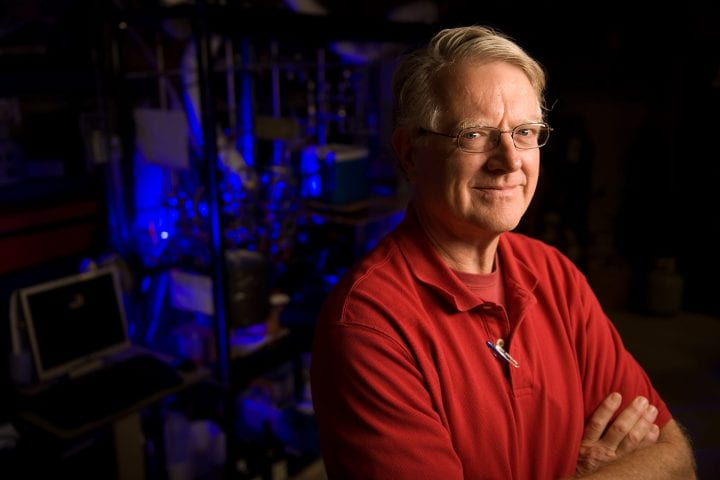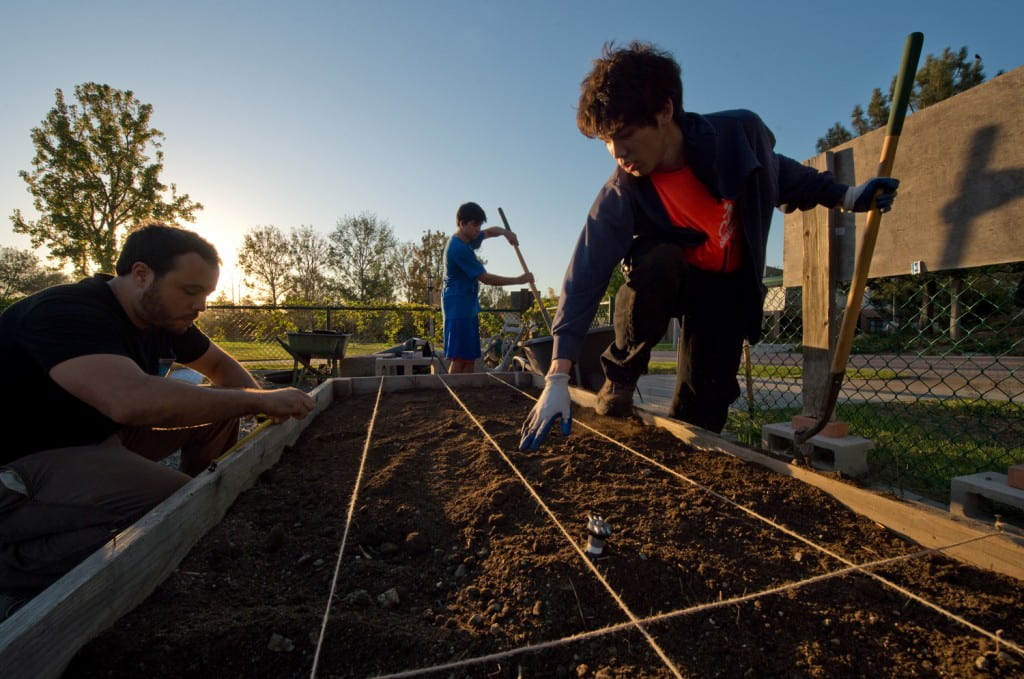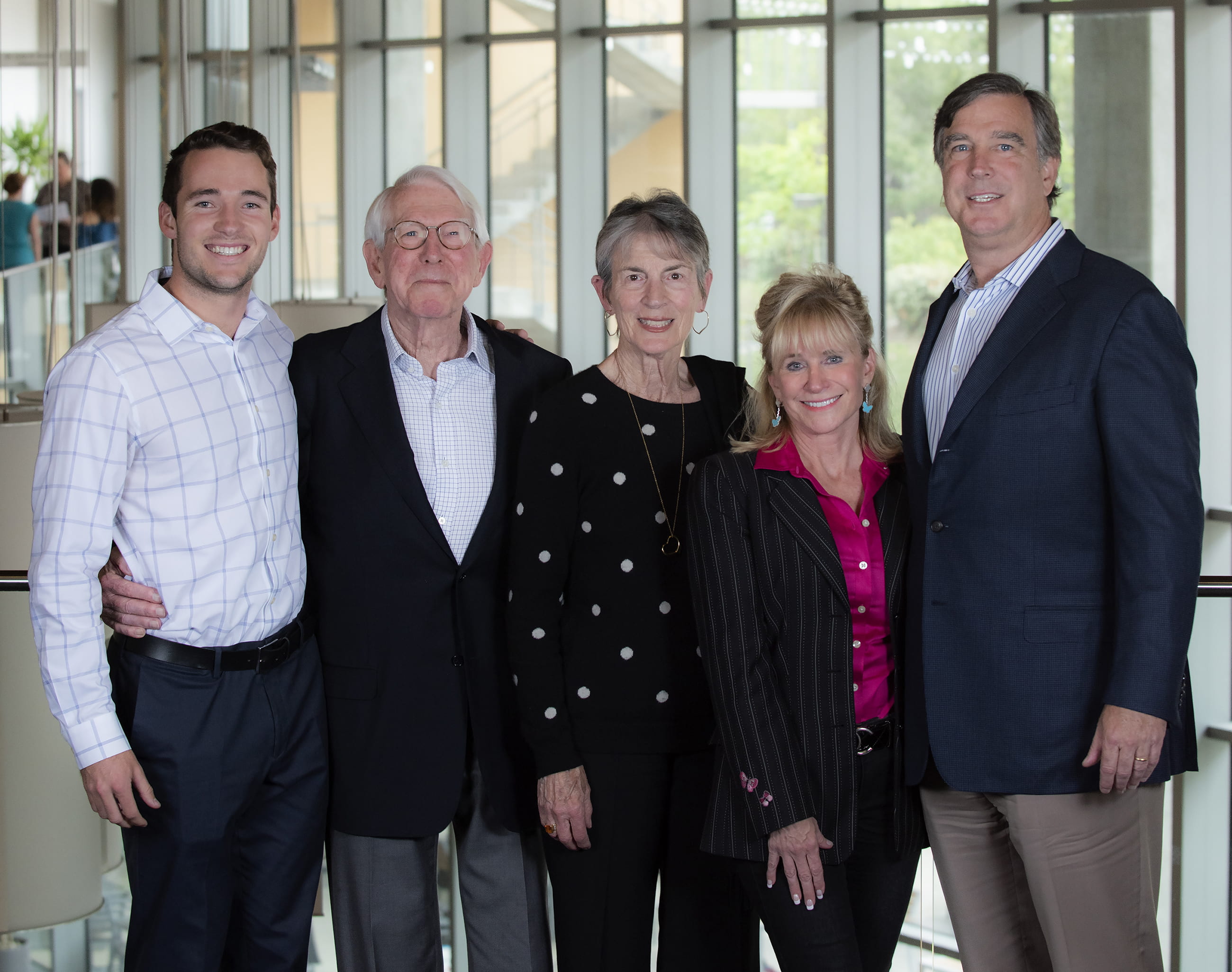Good chemistry
New physical sciences dean Ken Janda brings pride, optimism and 20 years’ of experience to the post.

As the new dean of UC Irvine’s School of Physical Sciences, Kenneth C. Janda has taken the reins of one of California’s leading research institutions amid deep state budget cuts, withering political criticism of scientists, and even belittling of public school teachers.
But Janda is an energetic, cheerful defender of the school he has loved since arriving nearly 20 years ago as an eager professor. He knows there are challenges but has seen physical sciences at UCI mature into an internationally recognized powerhouse with two Nobel prizes that conducts cutting-edge research on everything from the origins of the universe to melting glaciers.
“Certainly, we need to work hard to get funding, but this is a great time to be here. We’ve grown from a young research and teaching faculty into one of the best there is,” says Janda, 60. “I have the career I dreamed of when I was young, and the School of Physical Sciences is a spectacular school on an outstanding campus.”
Part of his clear-eyed optimism stems from the fact that, as a chemist, he’s accustomed to tackling potentially explosive situations. He vividly remembers his hand-made hydrogen discharge lamp blowing up as an undergraduate. “Chemists are problem solvers,” Janda says. “They deal with issues that range from deeply theoretical to very practical. They’re educated to think about issues from a broad perspective.”
His obsession with fixing things began as a boy in Denver, where he took apart and reassembled “everything I could get my hands on” – from clocks to radios to bicycles.
Janda says he became a scientist because of his high school chemistry teacher Lloyd Meech and physics teacher Phil Morrison, who somehow managed to have one of the country’s first lasers at South Denver High School in the 1960s. Janda earned undergraduate degrees in both subjects at Hope College in Michigan and went on to get a Ph.D. at Harvard University.
As a staunch supporter of public education, he’s baffled by the current criticism of schoolteachers and unrelenting cuts in funding to public universities. “I just don’t understand what the citizens of California are thinking,” he says. “Research and education are the foundation of everything we need to get done in this country. California has traditionally led the world in innovative research, and its economy has benefitted enormously.”
Janda cites Nobel laureate F. Sherwood Rowland’s work on ozone depletion as a particularly inspiring example of how UCI’s School of Physical Sciences became highly ranked in such a short time. “Rowland’s work was driven by simple curiosity, but ended up saving millions of lives,” he says. Continued high impact work in each of the school’s four departments has resulted in top-notch ratings by the National Research Council, U.S. News & World Report and others.
Physical sciences research, he notes, can be used broadly – whether by engineers designing solutions to climate change, doctors detecting cancer sooner, biologists probing species loss, or social scientists tracking how populations respond to rising seas and wider droughts.
Janda’s own laboratory is a testing ground for clathrate hydrates – water molecules at the boundary of chemistry and physics. It’s pure research into fundamental physical laws but could have a significant effect. Vast ocean reserves of methane hydrate could provide a clean energy alternative to coal.
An enthusiastic educator who still works closely with undergraduates, Janda has, in recent years, been associate physical sciences dean, head of UCI’s Academic Senate and a member of the UC Commission. Campus leaders say he’s the ideal choice for the high-profile job.
“In his two decades at UC Irvine, Ken Janda has maintained an expansive research portfolio in experimental molecular physics and quantum mechanics, while simultaneously establishing himself as a respected administrative leader at the school, campus and systemwide levels,” says Chancellor Michael Drake. “We’re looking forward to his energetic leadership of UC Irvine’s stellar School of Physical Sciences.”
Vice Chancellor for Research John Hemminger, the previous physical sciences dean, has known Janda since his days at Harvard and says: “He’s an outstanding educator. This combination of excellence in research and teaching makes him the ideal person to lead the school.
“During his first year as dean, he’s continuing his trademark approach of consulting broadly with the faculty on critical issues and making the decisions that will sustain and enhance the school’s widely recognized research and teaching excellence.”
Janda has been authorized to hire 13 more faculty members, a substantial vote of confidence by campus officials. “This will make a major impact on our school for years to come. Each decision is extremely important,” he says.
While the provost has been exceptionally supportive of the school, Janda says, “we still need to find significant additional financial support. We’re building relationships with companies, private donors and foundations to fund costly yet essential laboratories and equipment.”
Still, there is much to be enjoyed. He and his wife, Patricia, recently celebrated their 40th wedding anniversary with a second honeymoon in Argentina. Now Janda is gladly back home in University Hills, heading to his corner office each morning.
“It’s easy to be cheerful when you walk to work on the most beautiful campus anywhere,” he says. “I’m excited about getting the word out to the world at large what a special school we are.”


